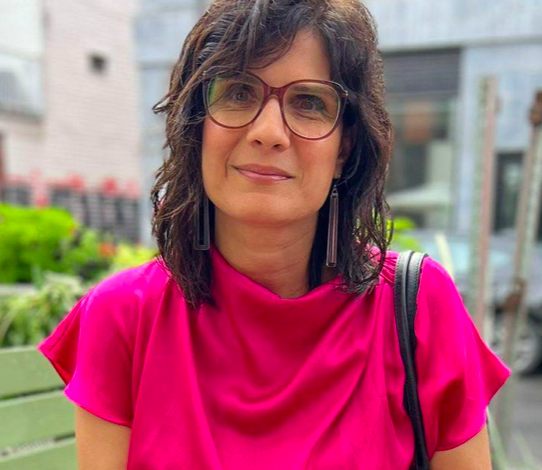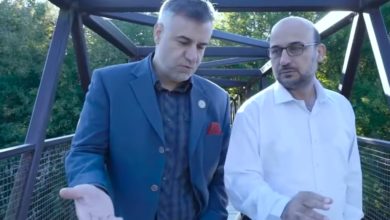المربية ومحارِبة الاسلاموفوبيا ليلى بدير

Leila Bdeir was born in Lebanon and immigrated to Montreal as a small child in 1976. After completing her
graduate studies in political science at the Université du Québec à Montréal (UQAM), Leila pursued a career in international development. During that period, she worked with international NGOs such as the Sisterhood Is Global Institute (SIGI), as well as at the International Development Research Centre (IDRC). After spending ten years in that field, she began a new career in teaching and in 2010 joined the Humanities Department of Vanier College, in Montreal. Leila considers it to be one of the great privileges of her life to be an educator, especially with as diverse a student population as the one at Vanier College.
As an Arab-Canadian who went through the education system in Quebec, she understands in a deep way how meaningful representation can be for racialized students. In 2010, Leila Bdeir created the first Cegep course on Islamophobia called Who’s Afraid of Arabs? She also co-lead a three-year participatory action research (PAR) project on the experiences of Muslim students in Cegep, a project which received a significant PAREA grant. This research has garnered significant interest in academic circles both in Canada and in the United States.
All of Leila Bdeir’s work, including in the classroom is rooted in a critical feminist and anti-racist perspective. Since 1999, Leila has been involved in grassroots initiatives to promote Palestinian human rights as well as participating in Arab and Muslim feminist work. As a vocal opponent to the war in Iraq, she participated in local campaigns to subvert the deadly boycott. She has also been a staunch organizer against Islamophobia and racism. In 2013, she co-founded a Quebec-based Muslim women’s collective the goal of which was to highlight the activism and research of Muslim women whose work has been instrumental in fighting against institutionalized Islamophobia. For the last few years, Leila has become involved in union work with the Fédération nationale des enseignantes et enseignants du Québec (FNEEQ) and was a key contributor to their recently-released Guide antiraciste.
Leila is committed to teaching her children Arabic and making sure they stay connected to their Lebanese roots. She believes this is the best way to honour the sacrifices of her parents and the resilience of the Lebanese-Canadian community.






